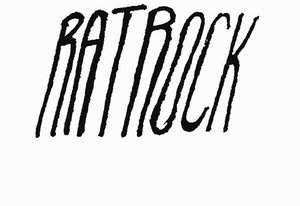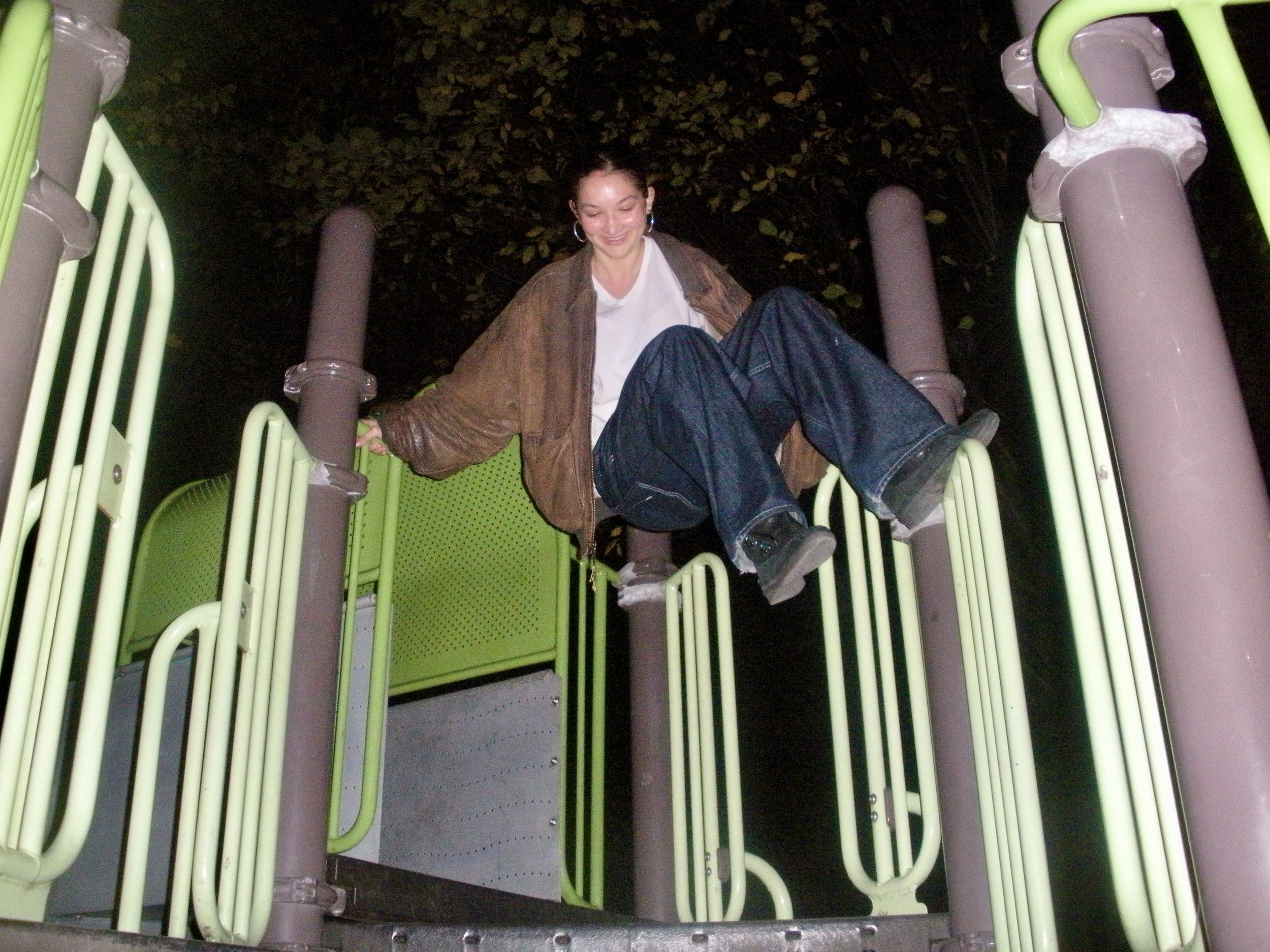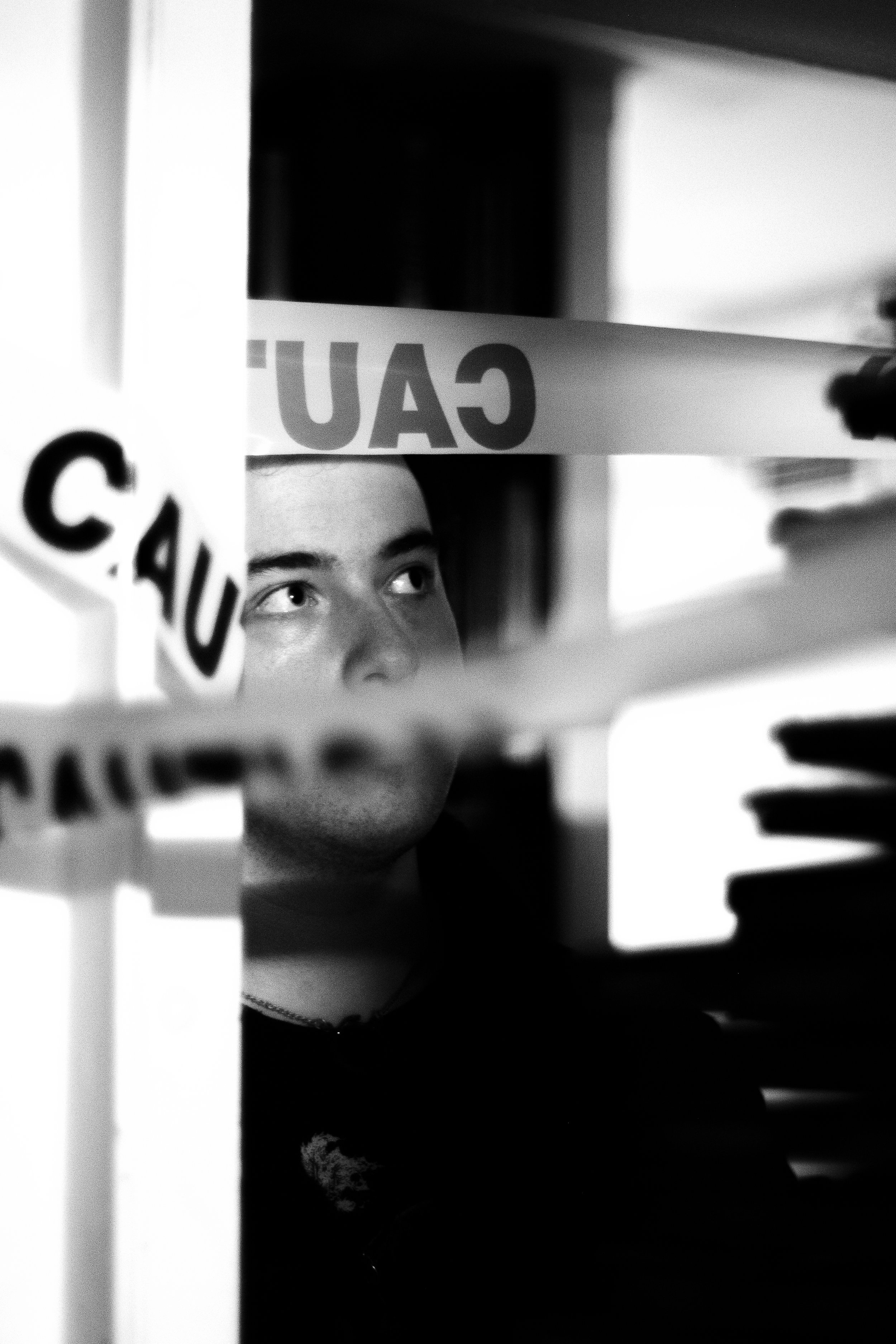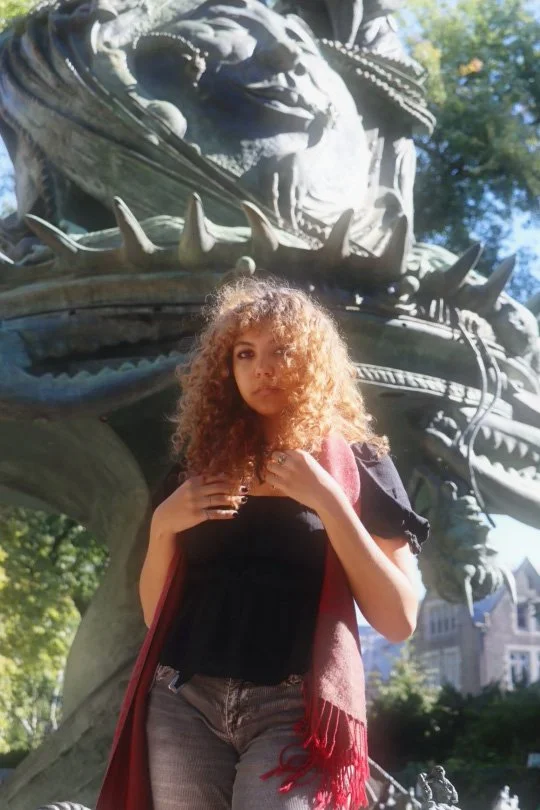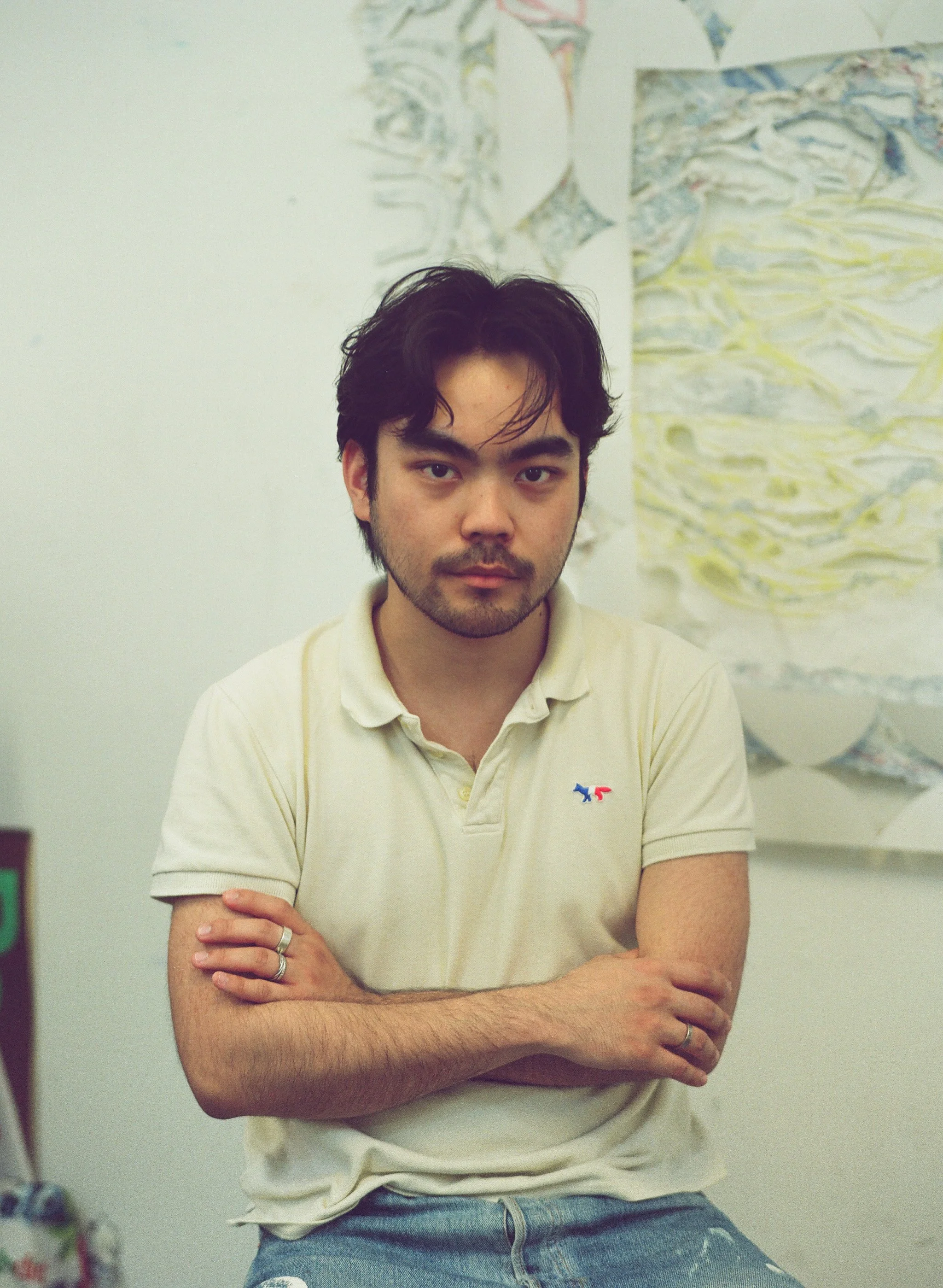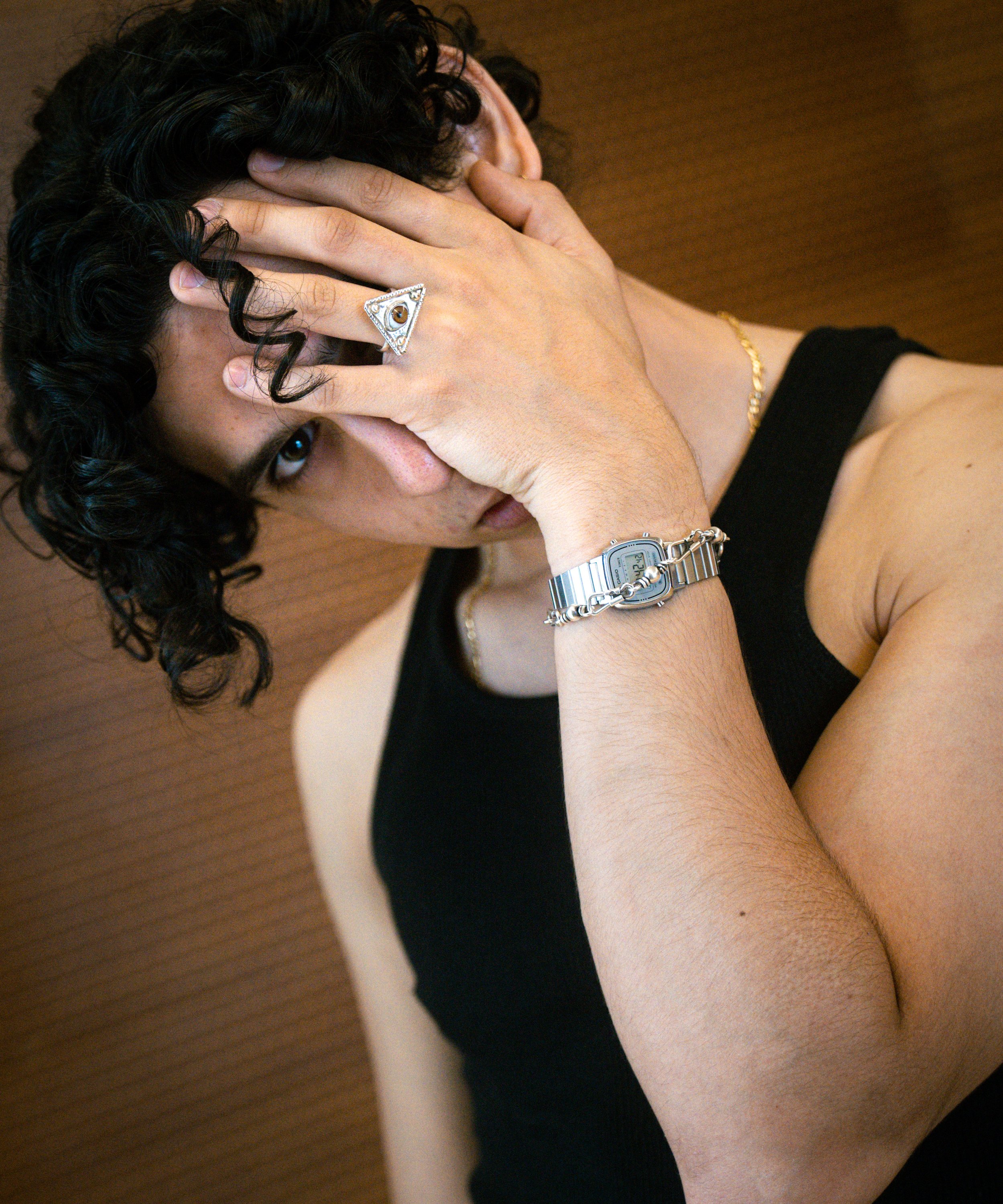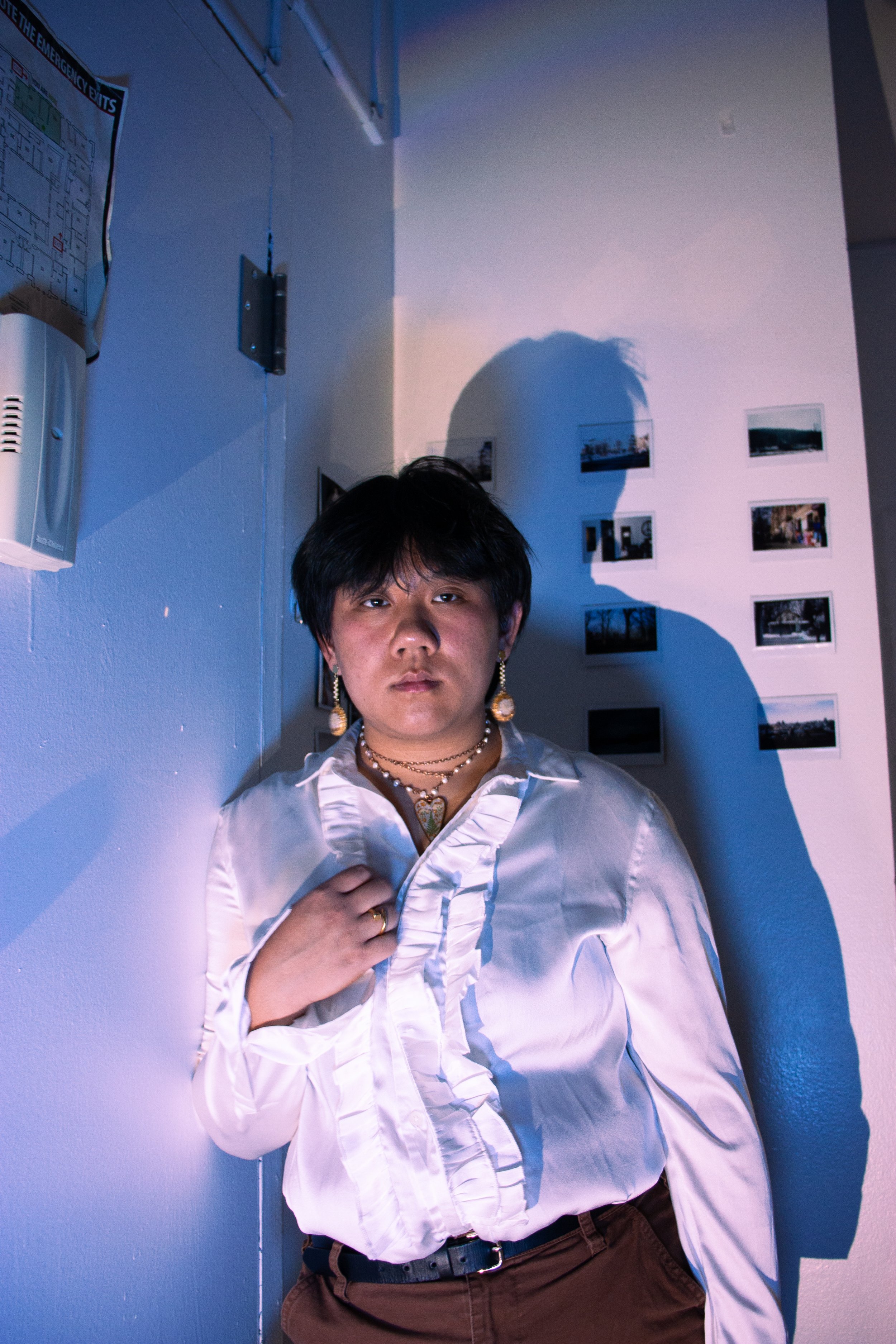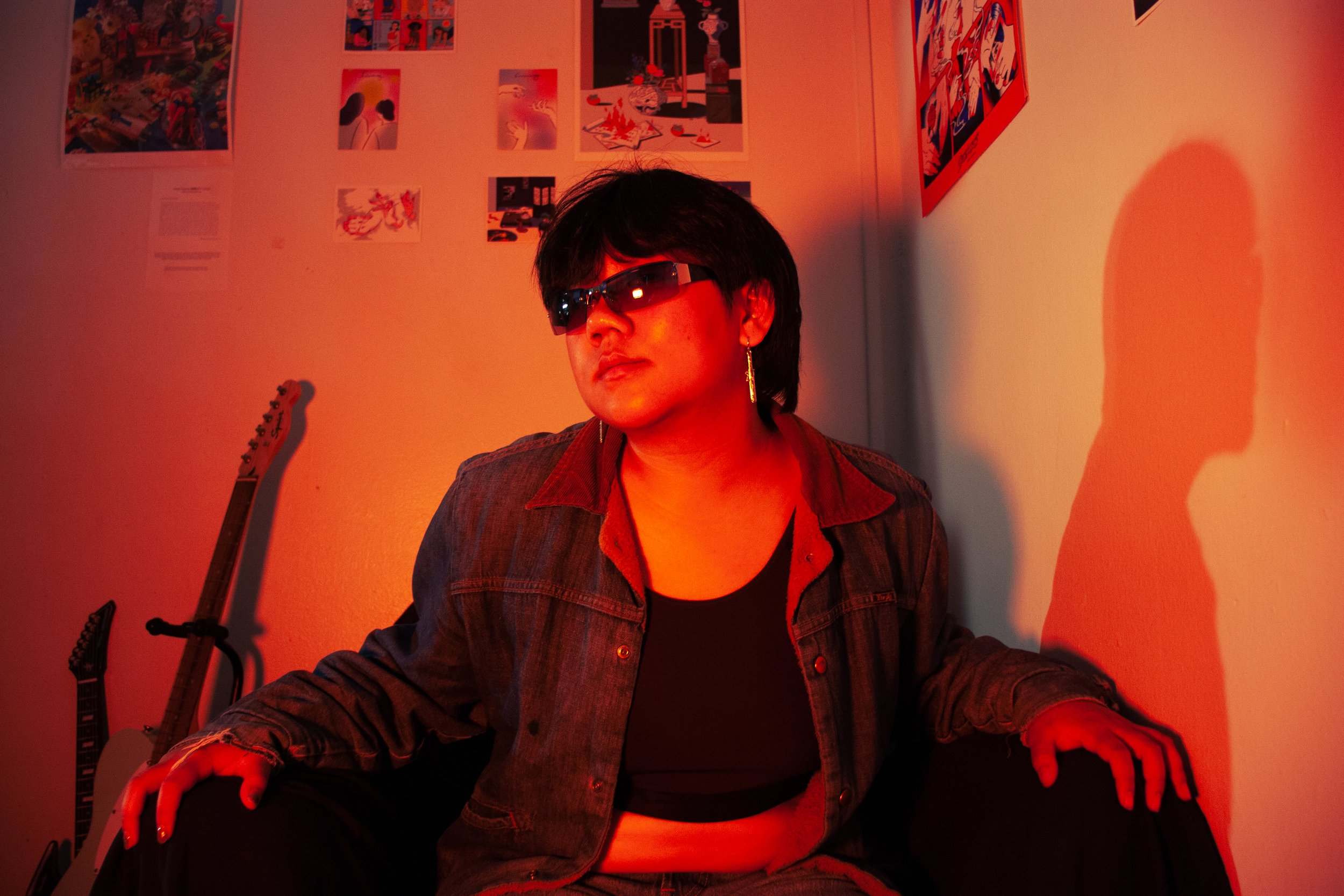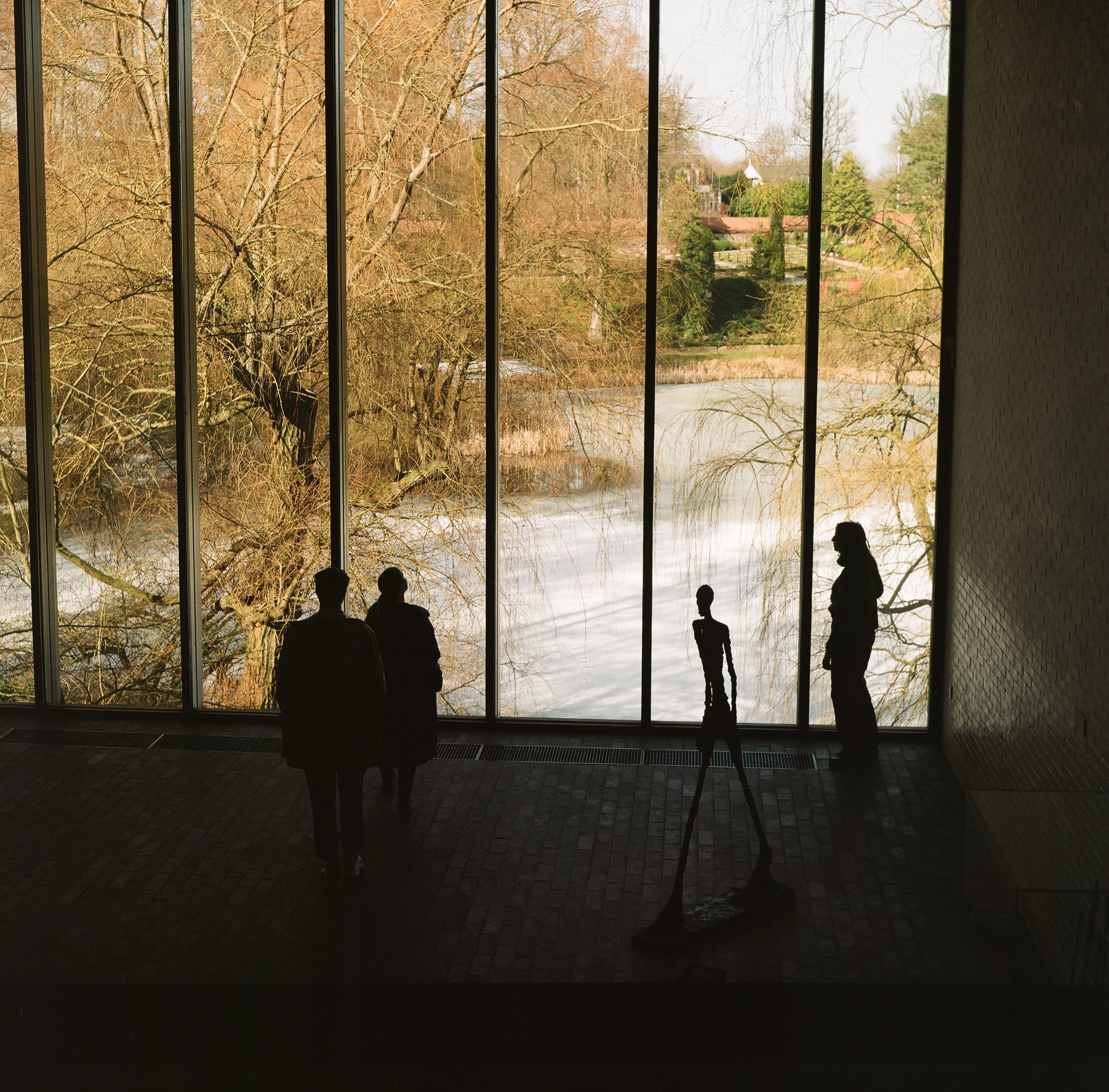Feature by Nora Cazenave
Photos by Frances Cohen
August Cao is a queer, Asian American writer and photographer from Chicago who looks for liberation in space, light, people, words, and time. They explore these themes through portraiture, street photography, and nonfiction writing, and will graduate from CC this spring, class of 2023, with a major in Creative Writing.
How did your journey as an artist begin? Did you start with writing or photography?
I’ve always had dreams of being a writer. I can’t believe I’m admitting it on tape, but I used to write fanfiction in middle school, which is where it started. I went to an arts high school, studied creative writing for four years, and then got to college and decided to study more creative writing, because I'm insane, I guess. My sophomore year I took a nonfiction writing class that changed my life. I thought “Wow, I can write about my life and be self absorbed. I love this.”
This process forced me to unpack and reflect on the life I was living, and the people I was living it with. It wasn't until recently that I had the courage to express myself, my feelings, and my thoughts verbally. I was always able to find that courage through writing; my voice just had to catch up.
How does photography fit in?
In high school I experimented with vlogs, which is why I first got a camera. Eventually, that turned into me wanting to take pictures. I took a lot of pictures of friends, which again evolved into my interest in street photography.
I write from a very observational and subjective point of view, because I don’t think writing can be objective. But both my photography and my writing reflect the ways I absorb the world. Photography is the visual component to the internal monologues I write.
Louisiana Museum, 2023
So writing and photography are sort of two sides of the same coin for you?
They definitely are. They use different parts of my brain, but they both have the same end goal of capturing the world through my lens, which you probably hear from a lot of photographers and writers. But it's true, because all of us see the world differently.
In your artist statement, you talk about trying to capture stillness in your photography.
My head is constantly running at 500 miles per hour. Writing allows me to sit down and meditate, to figure out what's going on with this constant circling happening in my head. With photography, it's like I'm seeing the world in frames, instead of in a blur. Growing up in big cities, everywhere is busy and constantly moving. Especially in the US, we all have this idea of cities constantly going, going, going. Photography allows me to sit in the moment. It allows me to enjoy the simplicity of how light hits a certain way, how architecture moves, or how things are built around each other. I would never have been able to see that stillness if it weren't for photography and writing.
Amsterdam, 2023
You mentioned the constant movement of living in a big city. I'd love to hear about your experience growing up in Chicago, because it seems like a big source of inspiration for you.
I love Chicago, I ride or die for Chicago. I see myself moving back there and settling down one day. There are a lot of people there that I consider home. I've grown into myself a lot since moving to New York, but I just fit into Chicago like a puzzle piece.
This past summer, I explored places I had never been before, even though I lived there all my life. I think this speaks to a very big problem of Chicago’s systemic segregation. People stay in their neighborhoods. I had the sort of privilege of going to a high school that wasn't in my neighborhood, which allowed me to see places and neighborhoods that my parents and brother still haven't seen, to this day.
No matter where you go in the city, there is something beautiful about it. Part of it is because of how money and politics divide the space, and it’s crazy to see the duality of skyscrapers and fenced-off or abandoned spaces. There’s merit in being able to photograph my city, the place I grew up in, as an outsider, because I’ve been able to readjust my perspective on things I used to see as mundane. All of it is so beautiful, and I cherish every memory that I have in Chicago. I could live in New York for the rest of my life and would still consider Chicago my home, despite everything I went through growing up there.
What kind of things did you go through?
I grew up in Chinatown, and I think my queerness caused a rift in how I could relate to a lot of people that looked like me ethnically. In my high school, there were very few people that looked like me. A lot of the students were queer, so they felt like me in terms of their queerness, but they didn't look like me. That was an interesting dynamic. I also struggled communicating with my parents because there was a cultural and language barrier. We're working on that now, which is really great, but that wasn’t always the case. There are a lot of things that happened that sucked in the moment, but shaped me into the person I am today. My art, the way I live currently, and the way I carry myself wouldn't have happened if it weren’t for those formative years in Chicago.
It seems to be a theme in a lot of your photography that you take photos of people you care about. Can you talk about the importance of these emotional connections in your work?
The only reason I have an ounce of photography talent is because I was able to practice capturing moments with my friends. At the end of the day, I value my friendships above making art. I've been reading All About Love, and it beautifully articulates my outlook on community. For most of my life I've had to build my own community. I went to a high school with all new people, so I was meeting people for the first time and made long lasting friendships there. It was the same when I came to Columbia—I knew no one.
All of these stages in my life that were important to my development as a person and an artist came with really intentional community building. Honestly, if I didn't have these communities, I would have called quits on a lot of things. It’s because of my friends that are like, “I believe in what you can do, and I believe that you can go bigger and better” that I keep striving for bigger and better things.
Justice
When you are taking photos of people that you don't already have that connection with, how does trying to create that connection, or getting to know them, factor into your process?
I've done a lot of freelance work, and I've worked with a lot of people I've never met before where my first time meeting them was literally on the street in Soho or Times Square, which is wild to think about. But I treat these people like friends. I'll ask them how their day is, what their aspirations are, what they plan on doing in the future, where they’re from… I value learning about them more than forcing them to pose in a certain way that will get the best light or will get them “the shot.” They’re not going to feel comfortable with a stranger just holding a camera in front of them.
Can you talk more about your creative process—whatever that means to you?
A lot of the portraits I take are spontaneous. I only recently started doing really planned shoots, so a lot of my more creative shoots are with friends. When I'm doing photos for clients, the creative process starts with taking a few preliminary shots to make sure that it looks good, and then just following them through the day. And then getting them in their element and maybe posing them. But I'm also talking to them and laughing with them, telling jokes, hearing about their day, what they do for a living…
A lot of them I don't ever see again, but I carry their stories with me. I don't remember all of them, I will say—I have a really bad memory. But there are a lot of people out there that have a story and just don't know they want to share it. That vulnerability shows in the photography. You can see it in the way they’re smiling and the way they're posing—there is a sense of connection in the photos because there's a connection between the photographer and the subject.
Sky Jetta
What does that creative process look like when you’re writing?
It’s almost the complete opposite. Writing is a lot more intimate. That's where I think that these two forms diverge. I prefer writing alone. If people are around me, I won’t talk to them until I'm done with something. Writing is also a really time consuming process, so it is a lot of sleepless nights. I feel like Taylor Swift saying that—“sleepless nights.” A lot of the creative writing I'm doing right now is for classes. Once I graduate, I see myself dedicating time in my day to writing, and writing down my thoughts as they come.
As an artist and a student, what has your experience been like at Columbia—the good and the bad?
The good is that I’ve met a lot of people that are also into art. It's been helpful knowing that I'm not alone in this journey toward artistry. The bad is that I have a lot of ideas that I’ve had to put to the side, which will hopefully change once I graduate. Hopefully I don’t put it off and let go of my artistry once I leave Columbia. That’d be really sad.
Tell me more about your own bad memory, and your use of photography to capture memories.
I've had to find ways to remedy my bad memory. It’s really about saying, okay, this is what I'm working with, what can I do, not to fix it, but to compliment it? Taking photos makes me stop for a moment to think, so some of the Polaroids on my wall were taken two years ago, and I can still tell you their story. I journal and photograph almost every day so I can remember what I was feeling at a certain moment, or look at a photograph and remember what happened that day. There’s something beautiful about having something ingrained in a physical space when my mental space fails me.
Cara Westwood
Many of your portraits feel very celebratory and colorful. Is that an intentional part of how you try to capture queerness in your photography?
Even from a young age, I’ve never looked the part of being a little cishet. It didn't take me a lot of time to be comfortable in it, but it did take me a lot of time to be able to celebrate it. Being in community with so many other queer folks and people that are loud and proud about who they are helped me be loud and proud about myself. There is this problem in photography where we like to capture struggle, but we rarely like to capture celebration. And I'm very big on celebration, which is why I care a lot about capturing my friends in the way that they feel most beautiful. I want to make sure people feel their best, because I think that a part of queerness is being fully yourself in the most authentic way. For a lot of my friends, that means being able to wear what they want, express themselves the way they want, pose the way they want, and not have someone tell them how their queerness should be cemented or how they should present themselves.
Do you have other artistic inspirations?
There are a lot of people I look up to who are making the kind of art that I always aspire to make—art that’s authentic to the person that's making it, authentic to the communities they are trying to represent, authentic to themselves, and authentic to their audience.
Paloma
Talk more about the importance of authenticity in your work!
Authenticity is being true to yourself. Sometimes your photographs are inspired by other people, which is fine. Sometimes your writing is going to sound like someone else, and it's fine. You make art that matters to you, even if it’s heavily influenced by other people. That matters more to me than uniqueness. Authenticity doesn’t require you to be different from everyone else. Sometimes authenticity is being just like everyone else, and that's fine!
Can you tell me about your tattoos?
Tattoo artists are also a big inspiration for me. I see it as having art on your body—I'm very big on “my body is a canvas” type shit. I really enjoy the way that people play with colors and compose something all together. I like silly, dumb tattoos; I don't see a purpose in them having a lot of meaning because meaning changes over time. Tattoos have made me feel a lot more liberated in myself and my body because I’ve struggled a lot in the past with my self image, which I figured out was gender dysphoria. But I worked it out and it’s led me to be able to really not give a fuck about what I put on my body.
Celeste in Action, 2023
Is there anything else you want people to know?
The only advice I would give to other people is to let yourself be celebrated. For the longest time, I never wanted to share my art. I literally had a catfish photography account at one point because I didn't want to share art under my name, I was so embarrassed that I was even taking photos. I still barely share my writing. There’s a lot of self doubt, especially in a place that’s so crowded with other artists. But you deserve to be celebrated.
I think everyone is an artist in their own respect. You shouldn't need to subscribe to a certain kind of art or a certain kind of photography or a certain kind of writing in order to feel celebrated. Your people will find you, just like I found the people that I know will support me until the earth falls apart and is taken over by a zombie apocalypse.
A Cowboy, 2023
“I imagine my father on our rooftop, from the makeshift door he carved out from a window during the summer. Green onion plants in plastic containers of soil. The breeze blows against the wet clothes hung up on the makeshift clothes rack. Random items scattered across the black, flat, rubber roof. All the items I have lost track of hundreds of miles away. My father sits outside on the roof and meditates away from our family. He spends his hours there when he is not sitting in bed watching videos and driving to buy groceries.”
Excerpt from Untitled, originally published in Silk Club's QUIET 06 Zine.
Check out more of August’s work on their website, augustisloading.com, and @digitally.augusts or @augustisloading on instagram.
